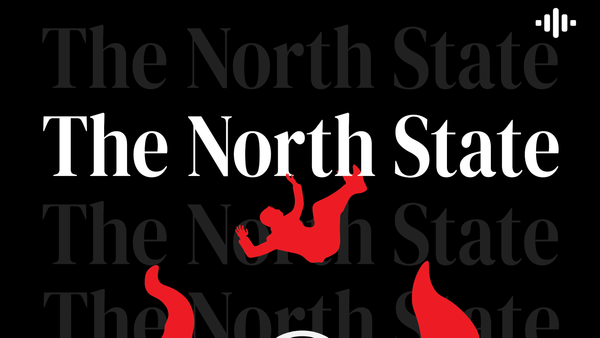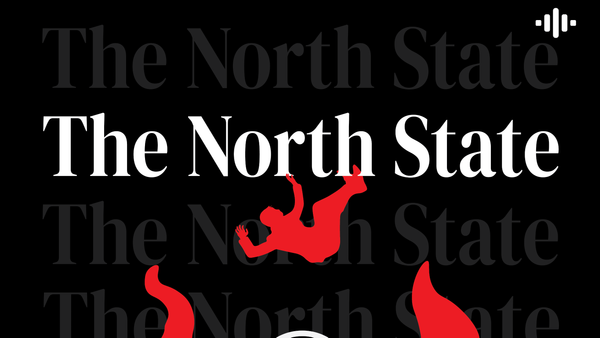CBC Bonuses Result of Corporatization of News
Public broadcasting has its pros and cons, but further cutting a necessary service is not the answer

After eliminating 205 vacant positions and laying off 141 employees since December of 2023, CBC paid out $18 million in bonuses in the 2023-24 fiscal year. According to Mickey Djuric at The Canadian Press, $3.3 million went to 45 executives, $10.4 million went to 631 managers and $4.6 million was paid out to 518 other employees.
Predictably, the federal Conservatives have used this report to bolster their "defund the CBC" pillar, which makes up approximately one third of their entire platform (the others being "axe the tax" and "we hate trans people.") Rachel Thomas, MP for Lethbridge and the Conservative Shadow Minister for Canadian Heritage, has been beating the "defund" drum since it dropped. "The CBC must answer," Thomas posted on Twitter (now officially known as X). "The CBC must be defunded."
As a result of this story and the Conservative's priorities, Thomas announced that the Conservatives are calling for the Standing Committee on Canadian Heritage to reconvene with the goal of grilling CEO and President of CBC Catherine Tait over these bonuses.
There's no question that these executive and manager bonuses are cause for anger, but the Conservatives aren't mad at that. They're just angry that it's the CBC, their punching bag of choice. Indeed, these bonuses mirror the preference of the Conservatives. The Narwhal reported that Conservative leader Pierre Poilievre has been lobbied by oil and gas representatives 46 times over the course of a year, sometimes at the request of Poilievre. For one example, Al Monaco, President and CEO of Enbridge Inc. (a company that lobbied Poilievre) was compensated $17,234,129 in 2022, of which only $1,750,696 was his salary. The rest consisted of shares, options and other financial compensation.
Excessive bonuses are fine with the Conservatives. They just know Canadians are against them. So they play act anger in one context that benefits their narrative, then ignore it in another.
Regardless of the Conservative talking points, the financial compensation disproportionately awarded to executives and managers is egregious. However, the CBC has had structural issues since its inception. It's just that now its current state is a result of making the CBC more like its private competitors.
As regular readers know, I have issues with CBC News. Indeed, their function as public broadcaster of Canada is to promote the country's goals. Necessarily, this translates into the news arm of the corporation running cover for Canadian interests, even when our allies commit atrocities. Anyone following The Breach and their coverage knows the bias entrenched at CBC News is extensive and damning.
A short look at CBC history shows their commitment to whitewashing Canada. The federal government of Conservative Prime Minister, rich capitalist and creator of unemployed work camps, created the CBC in 1936. As Communications Professor Mark Lloyd quotes him in an article in The Conversation, Bennett believed control of broadcasting was the agency "by which national consciousness may be fostered and sustained and national unity still further strengthened."
As Lloyd further notes, the governments of Conservative Prime Minister Brian Mulroney and Liberal Prime Minister Jean Chrétien significantly cut funding to the broadcasting agency. So Poilievre isn't new or innovative when calling to defund the CBC. His only contribution to the sentiment is to magnify the belief that it's somehow biased against conservatives. As Martin Lukacs writes in The Breach, CBC News often has a pro-Conservative bias, but ultimately "the most accurate picture is that the CBC is neither pro-Liberal nor pro-Conservative—it’s simply pro-establishment."
It's impossible to extract the CBC from the context in which it operates. Simply put, it's a public broadcaster in a capitalist, settler-colonial country. Even within that context, its purpose is a little murkier. The Broadcasting Act, which dictates the CBC's mandate notes their programming should specifically work to serve Indigenous programming and highlight Indigenous community elements, "which are positioned to serve smaller and remote communities."
While this goal is laudable, whether it fulfilled or currently fulfills these roles, is another matter entirely.
Unfortunately, news in rural communities hasn't been studied to the point one could draw concrete conclusions about the CBC's utility. However, there has been enough research to point a certain direction. For example, a study from 2009 found that "radio was deemed to be the second most important medium of news and local communication within communal or personal relations in a given community." This data certainly needs to be updated, but in our modern context, radio is still a crucial tool for obtaining information, especially in areas where internet is not easily accessed. Considering the federal government itself has acknowledged that rural and remote communities "still have limited or no access to broadband service," it's safe to assume the CBC punches above its weight in these areas.
It's entirely possible that a good number of these communities have no access to news outside of CBC. While that doesn't mean news quality is currently acceptable, it does mean that eliminating access to the CBC through further funding cuts is not a solution.
As a public broadcaster funded by the federal government, subject to far more regulation than private companies, the CBC is uniquely positioned with a mandate to serve the most people in Canada possible. Even considering their (many, many) flaws, they still deliver critical information to those who may not be able to access it otherwise.
So why do millions in bonuses still flow upward? Alongside the introduction of ads, a focus on profitability and lack of firm regulation dictating the terms under which bonuses can be handed out, the CBC has adopted the norms of the industry. Look no further than solutions to the CBC's problems floated in the public discourse, which often amount to worsening current issues. In an article discussing possible solutions, York University professor David N. Skinner suggests injecting more ads and reducing Canadian content as ways to improve the CBC. To be fair, this is floated alongside other fixes like local community partnerships, but considering further marketization of the CBC as a fix misses their role in the worsening of these issues.
While Tait oversaw these bonuses, they occurred within the context of the greater news media landscape. Crumbling local coverage, soaring corporate compensation and a widespread distrust of news in general all contribute to this attitude. Tait, those who approved the bonuses and those who silence marginalized voices must be held accountable, yes. But they are replaced with others that hold the same attitude, nothing will be improved.
Despite Poilievre and the federal Conservative's crowing, increased corporatization of the CBC is not any feasible way to improve it. To the contrary, that's how you create a scenario in which millions in bonuses can be handed primarily to executives and managers after hundreds of positions are eliminated.





